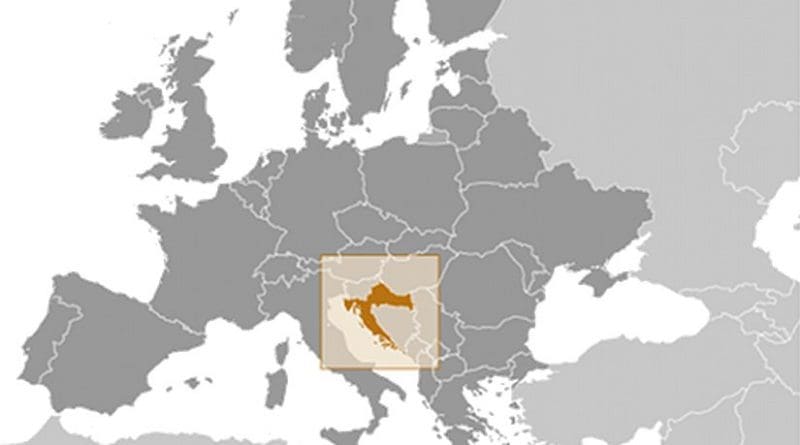Standing Ovation For Croatia’s 2013 EU Accession
By EurActiv
MEPs applauded a motion approving Croatia’s EU membership on 1 July 2013, after passing it yesterday (1 December) by a large majority in the European Parliament. EU heads of states are expected to sign the Accession Treaty at next week’s summit in Brussels.
The Parliament resolution, drafted by Austrian MEP Hannes Swoboda (Socialists and Democrats), was passed with 564 votes in favour, 38 against and 32 abstentions.
MEPs hailed the decision with a standing ovation in the plenary chamber.
Under the Lisbon Treaty, the European Parliament has acquired the right to give its consent to any new EU membership before the Accession Treaty is signed.
In Croatia’s case, the treaty will be signed by EU Heads of state and governments on the margins of the European Council on 9 December, with the participation of Croatian Prime Minister Jadranka Kosor and Croatian President Ivo Josipović.
“We have given a clear sign of the extent to which the EU wants Croatia,” Parliament President Jerzy Buzek stated in plenary.
Referendum
The former Yugoslav Republic is expected to become a full EU member as of 1 July 2013, after holding a referendum over its EU membership in the weeks following the signing of the Accession Treaty.
Holding an accession referendum is not a requirement for Croatia, but Zagreb took the initiative as a sovereign decision. According to a recent opinion poll, 52% of Croats say they would vote in favour of EU membership.
The treaty also needs to be ratified by all 27 member states (see background). No member country is expected to hold a referendum on Croatia’s accession.
In an accompanying report, MEPs urged Croatians to turn out en masse for the EU referendum. They called on EU member states to complete the ratification process swiftly and said they looked forward to receiving Croatian observers in Parliament very soon.
MEPs emphasised that they will follow the pre-accession monitoring process and asked the European Commission to keep Parliament abreast of the extent to which the Croatian authorities honour the commitments made in the negotiations.
Judicial reforms and fight against crime, corruption
Unlike Bulgaria and Romania, which have joined the EU under a “Cooperation and Verification” mechanism to monitor their deficient law-enforcement systems, Croatia will be monitored only until its accession. MEPs invited Zagreb to tackle remaining challenges, especially regarding judicial reform and the fight against corruption and organised crime.
They urged Croatia to step up its efforts to prosecute war criminals, comply with the International Criminal Tribunal for the former Yugoslavia, including on the returning of war refugees, especially Serbs.
Finally, MEPs called on Croatia to continue making structural reforms to its economy, stimulate employment by reviving the labour market and pursue fiscal consolidation in order to boost competitiveness.
The EU’s Enlargement Commissioner Štefan Füle stressed that Croatia was the first country to negotiate its EU membership according to a new method that includes benchmarks for opening and closing policy chapters.
In future enlargement talks, one of the first chapters to be opened will be law enforcement, the Commission recently said, having learned lessons from its recent experience.

